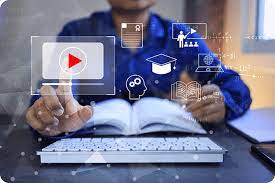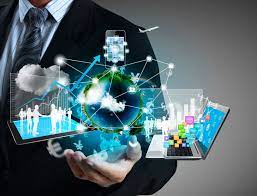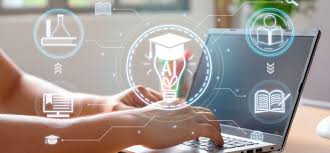Education is experiencing a transformative shift as it embraces innovation to better serve students and prepare them for future success. The traditional methods of teaching and learning are evolving, thanks to advancements in technology, changes in educational philosophies, and new approaches to curriculum design. In this article, we explore how innovation is reshaping education and what it means for students, educators, and society as a whole.
The Role of Technology in Shaping Modern Education
One of the key drivers of the changing landscape of education is technology. Digital tools, online learning platforms, and educational apps have revolutionized how students engage with material. For example, platforms like Google Classroom and Khan Academy offer flexible, personalized learning experiences that go beyond the traditional classroom setting.
Artificial Intelligence (AI) and Data Analytics: AI plays a significant role in tailoring education to individual needs. By utilizing data, educators can provide personalized feedback and develop customized learning plans for each student. This allows for a more effective and engaging learning experience.
Virtual Reality (VR) and Augmented Reality (AR): These technologies enable students to immerse themselves in dynamic learning environments that would otherwise be inaccessible. VR and AR allow learners to experience historical events, explore outer space, or even conduct science experiments—all from the safety and convenience of their classrooms.
Emphasizing Personalized Learning
Personalized learning is an educational approach that focuses on tailoring lessons and curricula to meet the unique needs and abilities of each student. With technology and data analytics, teachers can assess the strengths and weaknesses of their students and provide resources that help them learn at their own pace.
Instead of the traditional one-size-fits-all approach, personalized learning empowers students to take ownership of their education. It helps to foster self-motivation, critical thinking, and problem-solving skills—key competencies needed for success in the modern world.
The Shift Toward Lifelong Learning
As the world continues to evolve, there is an increasing emphasis on lifelong learning. In the past, education was viewed as something that happened primarily during childhood and adolescence. Today, the need for ongoing education throughout a person’s life is more important than ever.
Whether it’s through online courses, workshops, or certification programs, individuals are encouraged to continuously develop new skills to stay competitive in the workforce. Companies are increasingly seeking candidates who show a commitment to learning and adapting to new challenges. This shift in mindset is critical in preparing individuals for success in an ever-changing global economy.
Fostering Collaboration and Communication Skills
The modern workplace demands more than just technical expertise. Effective collaboration and communication are now essential skills that students must develop to succeed. Educational innovations are increasingly focused on promoting teamwork, problem-solving, and interdisciplinary learning.
Project-based learning (PBL) is one innovative approach that fosters collaboration among students. By working together on complex, real-world problems, students develop critical thinking, communication, and leadership skills that will serve them well in both their academic and professional lives.
Preparing for the Future: Skills That Matter
The landscape of education is no longer solely about academic knowledge. While foundational subjects like mathematics, science, and literacy are still crucial, the skills needed to succeed in the future are evolving. In addition to traditional knowledge, educators are now prioritizing skills such as:
- Creativity and Innovation: Encouraging students to think outside the box and apply creative solutions to problems.
- Emotional Intelligence (EQ): Teaching students to understand and manage their emotions and build strong relationships.
- Digital Literacy: Ensuring that students are proficient in using technology responsibly and effectively.
- Critical Thinking: Teaching students to analyze, evaluate, and synthesize information from various sources.
These skills will better equip students to face future challenges, adapt to technological changes, and contribute to society in meaningful ways.
Conclusion
The changing landscape of education offers immense opportunities for students, educators, and societies worldwide. By embracing innovation, such as the integration of technology, personalized learning, and the development of essential future-ready skills, we are creating an educational environment that fosters success and prepares individuals for a rapidly evolving world. As education continues to evolve, the key is to remain adaptable, open to new approaches, and committed to lifelong learning.
By embracing the future of education, we are laying the groundwork for a more informed, capable, and innovative society.
Call to Action
As we look to the future, it’s clear that embracing educational innovation is not just an option—it’s a necessity. Whether you’re an educator, a parent, or a student, now is the time to actively engage in the transformation of education. Explore new learning methods, take advantage of online courses, and stay informed about the latest advancements. The future of education is in your hands.





